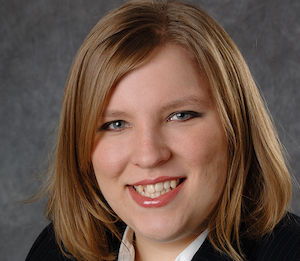
Katrina Brundage
is a Data Scientist & Legal Analyst at Juristat, a legal tech company that develops predictive models on the behavior of judges, patent examiners, attorneys, and other entities. Juristat is used by Fortune 500 companies, NLJ 250 law firms, and boutique firms around the country. Katrina holds a J.D. and a M.S. in Business Analytics from Michigan State University. While at MSU Law, Katrina’s involvement in LegalRnD and ReInventLaw, MSU’s legal services innovation and technology initiatives, fueled her interest in legal analytics in the patent industry.

Recent Articles by Katrina Brundage
After several articles and webinars discussing appeals outcomes at the USPTO, we have received numerous requests for Pre-Appeal Brief Conference data to explain how advantageous the program really is for applicants. Using the vast data resources of our system and Public PAIR, we studied all appeals from January 1, 2006 (six months after the program was instituted), to the present day, including pending PBC cases. For the purposes of this article, we were chiefly concerned with the overall effect that a PBC had on the outcome of an appeal. As such, we have indicated that a PBC ended with a “decision for applicant” when the application was either allowed or prosecution was reopened following a PBC decision, regardless of whether the decision was due to the PBC decision itself or a subsequent pre-appeal brief office action. What we found was that, while few PBCs result in an allowance from the PBC decision itself, they have a net positive effect on an application’s overall appeals success. An explanation of our findings follows.
The Track One program was instituted on September 23, 2011, as part of the America Invents Act. Known officially as the “Prioritized Patent Examination Program,” the USPTO promises a final disposition within 12 months for applicants who participate in the program and who pay the $4,000 fee for the privilege. To be eligible for participation in the program, an application can have no more than four independent claims and 30 dependent claims and no multiple dependent claims. Per USPTO regulations, applicants can request examination under the Track One program either from the date of original filing or with an RCE. We wanted to find out how beneficial the Track One program was for applicants who entered it at the beginning of prosecution versus at the RCE. The Track One program was ripe for study, which we originally started in 2015. This article is an update on our original findings, with a few new surprises thrown in.

![[IPWatchdog Logo]](https://ipwatchdog.com/wp-content/themes/IPWatchdog%20-%202023/assets/images/temp/logo-small@2x.png)
